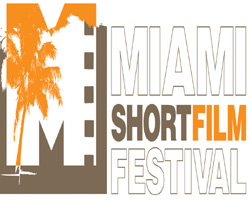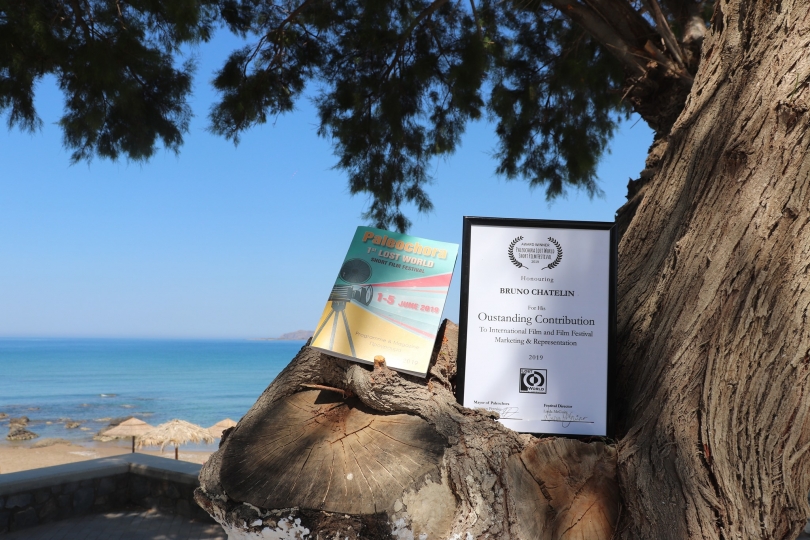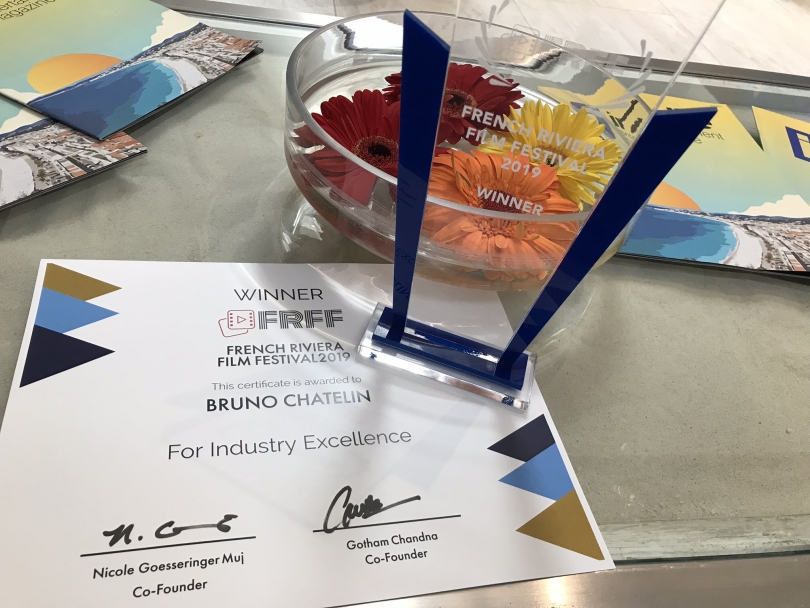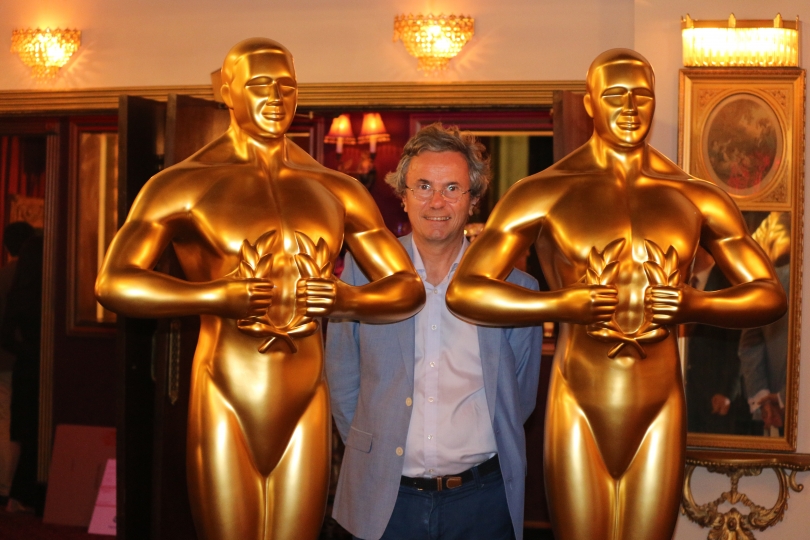~THE YEAR OF THE QUAKE ~
by Alex Deleon
Not to forget that this was the year of the Great March 11 Earthquake cum nuclear disaster and "Tsunami" Tidal Wave that washed away whole cities up north, the 24th Tokyo Intl Film festival was a somewhat restrained affair with the lingering effect of the disaster in evidence in various forms, toning down the overall climate of festivity. Right outside the entrance to the main tower housing the festival offices was a green collection booth where passers by were urged to make cash contributions for disaster relief, visual reminders (in Japanese) of the plight of survivors were to be seen all around, and a fair share of the film programming itself embraced disaster related subject matter. Of course Tokyo itself is quite far from the Fukushima disaster area but the daily newspapers publish daily nuclear radiation fallout figures at different distances from Ground Zero, and Tokyo is definitely within fallout range.
Moreover, there were parallel reports almost daily of angry public demonstrations against the continued use of Nuclear power in Japan. All this would hardly be noticed by casual foreign visitor to the festival where, on the surface at least, it was pretty much film festival business as usual, but festival director "Tom"Yoda did mention that there was talk of canceling this years installment at first before it was decided to carry on while using the resources of the festival to promote relief activities. One such initiative
was a set of extraordinary free festival screening for disaster victims in the northern city of Sendai on the fringe of the Ground zero zone.
Several films were either documentaries made in the affected areas after the quake (Hula Girls of Fukushima) or post March 11 feature films in which the events were mentioned. A point often expressed in print here is that the Fukushima plant nuclear meltdown and radiation discharge is the most damaging nuclear disaster in Japanese history since Hiroshima and Nagasaki. All in all, however, TIFF number 24 went off without a hitch during its nine day run demonstrating the resilience of the Japanese people in the face of
disasters, natural or unnatural.
The competition section, limited to fifteen entries, which is rather small for a major festival, had a commendable selection of titles considering that Tokyo, which comes late on the festival calendar, does not have the pick of the cream and has to settle for "leftovers" to a some extent. "Albert Nobbs" the irish production for which Glenn Close received a well earned best Actress prize, was certainly a competition worthy entry as was "Intouchables", the French film for which the chief protagonists, Francois Cluzet and Omar Sy were
awarded best actor prizes in tandem. "Play" from Sweden was a hard hitting study of racism in Sweden from the unusual viewpoint of teenage African bullies at a shopping mall. Line producer, Marie Kjellson, said that the reason for making this film (based on newspaper reports of many such incidents) was that most swedes are unwilling to face up to the fact that there is a racial immigration problem in Sweden and prefer to just sweep it under the carpet. The style of the film with stationary camera and long takes in crowded closeups is itself unusual enough to make "PLAY" a perfect festival flick. Director Ruben Ostland, 36, won the best director prize. Other films which were definitely of Big Festival quality were: "Trishna", UK director Michael Winterbottom's resetting of the Thomas Hardy novel Tess of the d'Urbervilles" to India, was certainly an eye opener, and far more interesting than the Polanski adaptation of 1979, known simply as "Tess", which launched Nastassia Kinski.
Winterbottom's "Tess" (now, "Trishna") is young Indian actress Frieda Pinto, who is an increasingly seen face ever since her debut in "Slumdog Millionaire", 2008. "When Pigs have Wings" (Le Cochion de Ghaza) is a comical take on Israeli-Palestiinian relations based on the gimmick of an Arab Fisherman fishing up a pig (Forbidden meat in both cultures) and trying to cash in on his windfall. This upbeat take on an extremely downbeat situation was the most popular audience film of the festival and picked up a $10,000 prize in that slot.
The special Screenings selection backing up the competition was truly special with such fare as: "1911", Jackie Chan's landmark 100th film in which he plays the serious role of the general who backed up Sun Yat-Sen in the Chinese revolution of that year which overthrew the Last (Ching) Emperor; "The Mill and the Cross", Polish director Lech Majewski's artful dissection of Pieter Breughel's pictorial masterpiece "The Way to Calvary", featuring Dutchman Rutger Hauer as the painter Breughel, Charlotte Rampling as the Virgin Mary and one time English heart throb, Michael York; plus works from two German master craftsmen, Wim Wenders and Werner Herzog -- the former with "Pina", his
feature length dance film based on the choreography of legendary German choreographer, Pina Bausch, who passed away in 2009, and the latter, Herzog,
represented by his 3D documentary "Cave of Forgotten Dreams" revealing wall paintings in a cave in southern france going back 30,000 years, the oldest
examples of human art ever discovered. "Pina" premiered at Berlin in February and "Cave" has been film festival fixture all year. Other special screenings were the latest version of "Three Musketeers" by England's Paul W.S. Anderson in massive 3-D starring the director's wife, Milla Jovovich and featuring recent Oscar winner Austrian actor Christoph Waltz (as Richelieu). Waltz won his supporting role oscar for Tarantino's "Inglourious Basterds" (2009) and
has become a hot property in Hollywood ever since, appearing already this year in Polanski's "Carnage" and the comic book adaptation of "The Green Hornet".
"Musketeers" was the fest opener, and the closer was the much talked about new Brad Pitt baseball vehicle "Moneyball", which should go over well in Japan
where Pitt is an Idol (where isn't he?) and baseball (Japanese style) is a national obsession. Another interesting title I wasn't able to get around to was "Goethe in Love", the story of the towering German writer's youthful fling with Charlotte, that became the material for his masterpiece, "The Sorrows of Young Werther". All in all, plenty to chew on ...
One thing missing was a kind of central meeting place for journalists to chew the fat and chew over the films, and another was a formal press conference
venue as at all big festivals. The so-called press room was a cubby hole up some back stairs so hidden away as to not be worth the effort. Bring laptop if
you gotta do daily reports! Nothing compared to spacious buzzing press rooms such as are found at Berlin, Karlovy Vary, or San Sebastian. One nice spot serving partially in both capacities was a small bistro, with outside tables, called "The Movie Cafe" on the main walkway leading up to central festival Tower entrance. Here one could find coffee and snacks, watch TV clips, and at the rear a modest space was reserved for small press conferences, (entirely in Japanese), and a small stage used in the evening for live musical relief. Mostly patronized by local Japanese. Some evenings the whole cafe was closed off for a film party, entry by badge only. However, one of the most interesting festival sidebars also took place here on a selected evenings. Silent film shorts, some ancient classics --like the original Lumiere Bros. clips -- or early B/W animation, were projected on a screen at the back, while a BENSHI (traditional silent film narrator) in traditional dress provided a highly theatrical live "voice over". What is interesting is that the Benshis were all young men specially trained in the Benshi art -- one told me that there are only about fifteen such narration actors in all of Japan these days, carrying on this venerable tradition. After the silent flickers the Benshi would introduce a quintet of traditional musicians playing exotic, but highly appealing Japanese music on traditional instruments; Biwa, Shamisen, Shakuhachi (wooden flute), Koto, (a long horizontal twanger with an ethereal tone) and mixed percussion. I personally found this to be the perfect end to an otherwise futuristic Japanese day.
With oodles of new Japanese films on tap and a large selection of Titles from Korea, China and the Philippines in the "Winds of Asia" section plus a
sprinkling of films from everywhere else and a nifty slate of documentaries on directors such as Kurosawa and Roger Corman (from the sublime to the
ridiculous) TIFF 2011 can certainly hold its own as a wannabe A-List festival, if still a bit too far down the road to rank in the really big leagues of Cannes, Venice
and Berlin -- which is the stated aim of festival honcho "Tom" Yoda. To join that kind of company Tokyo would need to become less fixated on Japan inc. and broaden its guest horizons to include more recognizable "Gaijin" (White devils from the west) faces. Compared to a festival like Berlin or Venice there was
hardly any noticeable presence of western journalists. The so-called "Winds of Asia -Middle East" section, top heavy on Asia, could certainly use a little more "Middle East" --notably Indian and Iranian films. In this respect Karlovy Vary's "East of West" section is far richer. I was quite surprised to find not a single Iranian film
and a pitiful three from India, two of them documentaries.
Singleton issues of the standard Industry Journals, Variety, Screen Int'l, and Hollywood Reporter, were around at the beginning of the festival but there was no daily followup, and being in English, these papers basically mouldered in their holders. The daily English press of Tokyo did not follow the festival (except for a windup article after the close by eloquent resident scribe Mark Schilling, who also authored the well tuned pre-fest Variety article) and, as far as I could tell, there was little or no daily coverage in the Japanese press -- this, as compared to a city like Berlin or Venice, where ALL the papers carry copious coverage of the festivals from day to day. I found that around town, and even on the very festival premises in the futuristic Roppongi Hills sub-city where the fest was centered, hardly anybody outside of festival personnel was even aware that an International Film Festival of some importance was going on practically under their very noses -- even though there were big TIFF signs all over the place. So, in a sense, the Tokyo film festival was sort of lost in the incredibly rich visual shufflle of the city. Around the corridors of the festival itself, notably in the main tower, there were wall TVs all over the place carrying playbacks of festival events, green carpet arrivals, press conferences and the like, but this was all in Japanese with the sound turned down so that hardly anybody except for the most hardened film buffs paid any attention -- it was sort of like visual background decoration. The one TV clip that I kept noticing, and seemed to be following me around everywhere, was the constantly repeated green carpet appearance of Milla Jovovoich and the Musketeers ensemble, director Anderson, actor Logan Lehrman (D'Artagnan) and wispy blonde actress Gabrielle Wilde (born 1989) who, while she has only a minor part in the film, nearly upstaged Ms. Jovovich in the clip with her slit up the front gown that kept affording glimpses of some extremely well turned legs and inviting thighs! Milla, ever the elegant MiLady of the film, and no slouch of a looker herself, even at 36, was gracious enough to introduce Gabrielle as a talented new discovery.
The Bottom Line -- Tokyo is a late-year festival worth a look-see if you happen to be in that part of the world but it's got a long way to go to become one of "The Big Four". (More like "The Big ten" -- perhaps).
Gabrielle Wilde is a wild new discovery

 Chatelin Bruno
Chatelin Bruno 




























